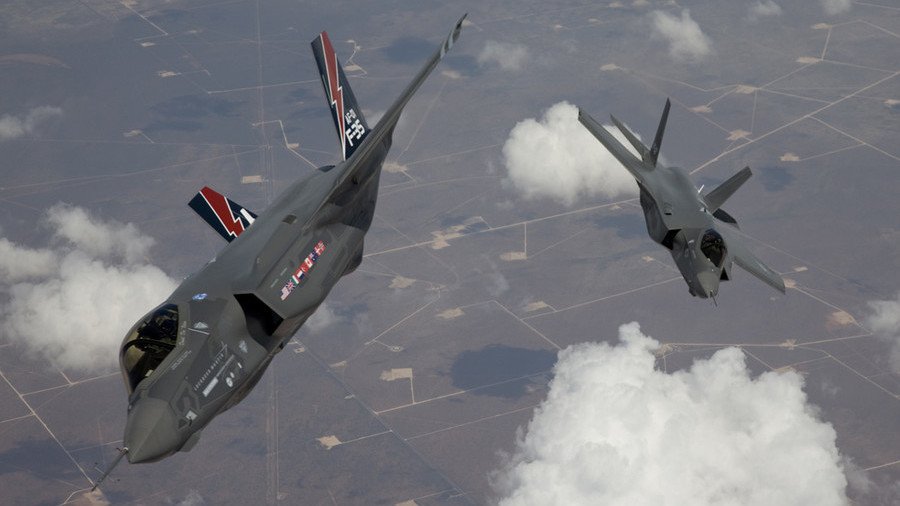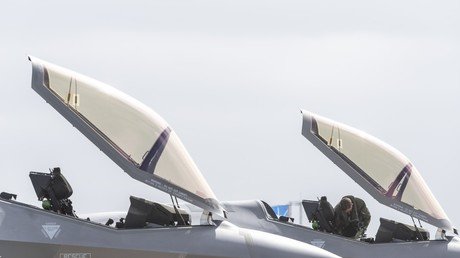US lawmakers defy defense secretary, greenlight delay in F-35 sales to Turkey

The US Congress moved closer to an outright ban on sales of F-35 jets to its NATO ally, Turkey for its decision to buy Russian S-400s. Lawmakers have now OK’d a delay to the delivery, despite warnings from the defense secretary.
Defense Secretary James Mattis must submit a report to congress assessing Turkey’s part in the F-35 program, Senators Thom Tillis and Jeanne Shaheen announced on Tuesday. The special provision is now included in the conference report for the Fiscal Year 2019 National Defense Authorization Act (NDAA).
The senators say the defense department “may not deliver any F-35” to Ankara until congress gets the report. Turkey received two jets in late July. However, the delivery of the remaining aircraft now appears to be uncertain.
Ankara's decision to buy Russian S-400 anti-aircraft systems has contributed to growing tensions with the US. Shaheen says Turkey’s “stated ambition” to buy S-400s “continues to give our government pause,” particularly as it relates to the F-35. She also urged Turkey to put its alliance and membership in NATO first.
The second reason for congress’ opposition to the sale of F-35s to Turkey is the detention of Andrew Brunson, a pastor and US citizen. He is being held by Turkey on charges of espionage and assisting the plotters of an unsuccessful 2016 military coup attempt.
Ankara, which plans to acquire 100 stealth multirole fighters, already said it will go elsewhere if Washington fails to deliver on the sale. In May, Turkish Foreign Minister Mevlut Cavusoglu said the F-35 deal was a “substantial legal agreement,” noting that Turkey has made all of its regular payments. He lambasted Washington, saying that the purchase of F-35s “has nothing to do with our procurement of the S-400s.” Earlier in July, Cavusoglu also warned that Ankara will retaliate if the US imposes sanctions over the purchase of S-400s.
According to a CNN report from early July, Mattis slammed Turkey as “authoritarian,” but warned that removing it from the F-35 program would result in a production break and delivery delays. “At this time, I oppose removal of Turkey from the F-35 program,” he said in a letter to lawmakers negotiating over the 2019 NDAA.
US relations with the rest of NATO have not been much smoother over recent months. During the bloc’s recent summit in Brussels, US President Donald Trump managed to irk many of his alliance partners with his claims and ultimatums, angering even his most devoted NATO partners, including France and Germany.
READ MORE: Turkey’s S-400 purchase risks exposing F-35's weaknesses – NATO general
Meanwhile, the F-35 program itself has had its setbacks. The stealth fighter continues to be plagued by various faults, including malfunctions in the oxygen-supply system. In 2017, a Pentagon report revealed the jet had more than 270 deficiencies, ranging from software to structural problems.
Subscribe to RT newsletter to get stories the mainstream media won’t tell you.















